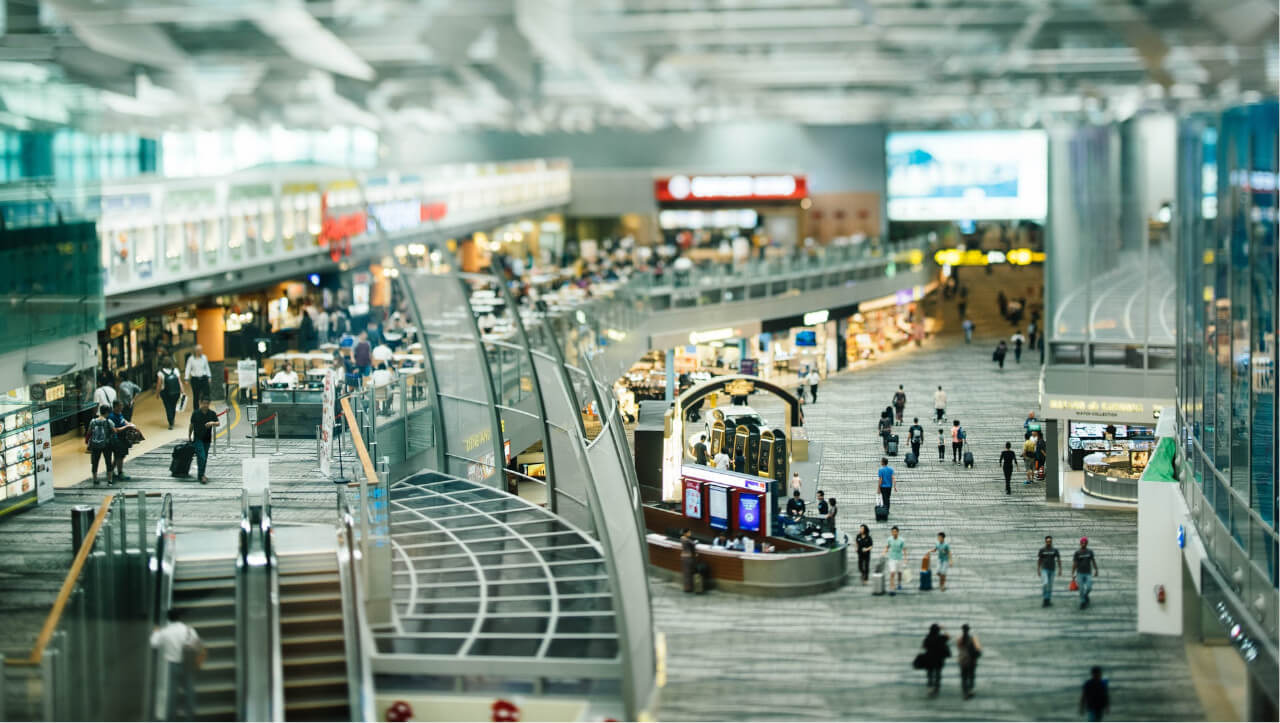No one probably has escaped the fact that corporate travel has reduced tremendously and come to a halt during the Corona pandemic.
NB: This is an article from berner+becker, one of our Expert Partners
The assumptions and discussions around it and the long-term effects have naturally been many. Now however more studies are emerging that are making the picture clearer of what’s to expect, and some insightful conclusions can be drawn. Conclusions that can help the proactive hotelier stay ahead of the currently quite challenging “game” of optimally filling the rooms.
Subscribe to our weekly newsletter and stay up to date
LESS TRAVEL EXPECTED
For 2019, Statista reported an all-time high record of 195,4 MIO travel for business purposes in Germany. In a new study conducted in September 2019, when asked how many business-related trips one had taken in the last 12 months, 75% of the respondents indicated zero trips. But what does the future hold then?
According to a study about business travel expectations from Roland Berger in October this year, 55% of respondents said they expect an overall drop of 20% in business travel post-Covid. For Europe, that same number is 25%. Furthermore, airline estimates in the US are reporting an expected drop of business travel between 19-36%.
ADAPTING TO CHANGE
Looking at some of the stock prices of the big chains, one could question whether the industry and stockholders have understood the gravity of this change. Looking at Hilton, Marriott, Hyatt and Intercontinental, all but one have in this writing moment, a stock value surpassing that of pre-Covid. This could be seen as surprising considering that a very large part of their business is bound to corporate travel in business-focused hotels. The chains surely do a lot to adapt to this change, and so should every hotelier. It would be dangerous to just sit around waiting for the demand to come back. Here independent hotels have an advantage as they can move through change faster than the chains, and they must use it!
REASONS
Some of the main drivers reported in the Roland Berger study behind these low expectations are perhaps more obvious than others, such technology having enabled better online meetings and companies’ environment commitment of lowering carbon emission and therefore restricting travel. Comfort is also one of them and many who used to travel extensively are simply happy to spend more time at home. Also, the financial cost-saving benefit with less travel for companies is evident.
TYPE OF TRAVEL
To know how this can affect the hotel industry we at berner+becker find it’s also important to look at what type of business travel is impacted mostly. What we can see is that internal meetings are shifted to online as much as possible. Client-related work meetings also happen less but still, companies still seem to find the incentive of happy clients as an important reason for travel. Furthermore, we expect sales-related meetings to return faster than other types, as winning a new client over the competition is always a priority, and for that, a face-to-face meeting is very efficient. When it comes to fairs, we do see a tendency with some fairs already having come back, that being physically present to touch and feel new products give added value. Hence, fairs will not cease to exist but are expected to be weaker until world travel comes back stronger.
MEANS OF TRAVEL
Interestingly, not only the type of travel will change, but also the means of travel will. Again, Roland Berger reports that airline travel is expected to decrease by 8%, with this volume being shifted into mostly road travel +13% and also a small increase in rail travel is expected.
HOTEL ACTIONS AND COMMERCIAL STRATEGIES
So, what can a hotel do to be agile and accommodate these changes? We at berner+becker expect tough competition for the existing corporate travellers in the short and mid-term. This will lead to a change in how contracts are negotiated and to what terms.
To capture the remaining corporate demand or travellers combining leisure and business, hotels also need to think out of the box and renew themselves. In our top “11 tips for your corporate business” list, we have summarised some valuable easy actions that you can do to stay ahead of the competition.
Unfortunately, in the mid and long term, a large chunk of the corporate travel will evidently not come back. To best prepare for the future hotels must, to the extent possible, try to re-brand and attract new target groups focusing on leisure demand. This could be in the form of adding recreational facilities such as a spa etc. and perhaps removing a couple of rooms from the inventory rather than having them empty. Replacing the corporate segment with other existing segments, with a large focus on groups, travel agency business, online direct and OTA business is also worth pursuing to stay ahead of the competition.
LONG -TERM
I believe that the farther long-term future is prosperous, also in corporate travel. At some point, overall world travel will surpass that of pre-covid with 1,5 billion arrivals in 2019 according to UNWTO. Especially with Eco-friendly options becoming available on a broader scale, and when we can all feel safe again. But it won’t be with the same travel mix as before, and leisure travel will take a larger share. So, hotels need to act now and make sure they adapt to the new situation. Eventually, corporate travel will also surpass that of pre-Covid, but that will take a good while longer.





